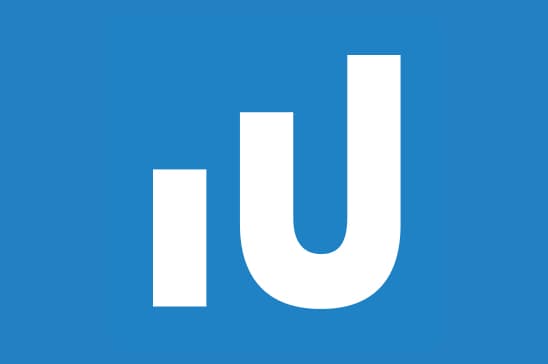What Sophisticated Investors Should Expect in 2020
- We just closed a record year, but what most concerns investors now is what lies ahead.
- Today, Alexander Green explains how you can expect to grow your wealth – whether you’re an expert investor or you’re just starting out.
We just finished a great year for the market… as well as a superb decade.
The S&P 500 returned 30.4% in 2019. It generated a 256% return – or 13.5% annually – since the beginning of 2010.
Many of our Oxford Club investment portfolios did even better.
Yet this is already ancient history. What concerns investors now is what lies ahead.
So today I’ll reveal the unvarnished truth about how things will turn out in 2020.
However, it’s a bitter truth you may not want to hear: No one knows.
That may sound disappointing – or just plain odd – coming from someone who gives investment advice for a living.
After all, people in my business are supposed to have strong, well-reasoned opinions about economic growth, inflation, interest rates, currency values, commodity prices and the outlook for the market.
The problem is that those opinions are worth exactly what you pay to hear them: nothing.
Why? Because economic forecasting and market timing can’t be done accurately and consistently and, therefore, don’t add value.
Let’s take a short trip down memory lane…
A decade ago – with the nation having just undergone the worst economic downturn since the Great Depression – who predicted that we were at the beginning of the longest economic expansion in U.S. history?
No one. Economic pessimism was rampant.
Since the market had already taken a significant bounce off the bottom in 2009, who predicted at the beginning of 2010 that large cap stocks would more than triple and small cap stocks would more than quadruple in the decade ahead?
No one. Instead, the widespread consensus was that investors needed to adjust to “the new normal,” far-below-average stock market returns going forward.
A decade ago, with interest rates near zero, who predicted that 10 years later rates would be negative on more than $14 trillion worth of global bonds?
No one. Instead, the dominant view was that ultra-low rates were a short-term aberration and investors should expect them to quickly “normalize” (i.e., return to historically higher levels).
Another dud forecast. Good thing we didn’t buy into any of them.
At this point, some investors will say, “Well of course no one knows for certain how the economy and the financial markets will perform, but you have to guess.”
No. You don’t have to guess. That’s my whole point.
As an investor, you want to avoid guesswork as much as possible and use an approach that gives you the highest probability of success.
How? By asking a fundamental question that is at the heart of sophisticated investing: “Given that no one can tell me with any certainty what the economy or markets will do, how should I run my money?”
Here is the answer based on my 35 years’ experience as a portfolio manager, investment analyst and financial writer:
- You adopt an asset allocation that allows you to capitalize on the uncertainty inherent in financial markets. (Subscribers to The Oxford Communiqué can find my recommended asset allocation model here.)
- You outperform the market not by correctly predicting its short-term movements – a mug’s game that no one wins – but by selecting and owning companies that give substantially higher returns. (See our recommended portfolios for examples.)
Longtime readers understand my agnostic approach to the future – and the market-beating success we’ve had with it.
However, tens of thousands of readers have only joined us in the last few months and might benefit from a primer.
So here it is…
I do not recommend stocks because the economy is strong, corporate earnings are up, taxes are down, the market is in an uptrend or Donald Trump is in the White House.
I recommend stocks because more than two centuries of financial history demonstrate that a diversified portfolio of common stocks – or, better yet, uncommonly good stocks – is the best way to grow your wealth and protect it from the ravages of inflation.
The trade-off for these much-higher-than-average returns is that equity investors have to endure occasional and unpredictable bouts of neck-snapping volatility.
(See 2007 through 2008 for details.)
However, a broadly diversified portfolio lessens your risk and volatility. So does asset allocation. (That means spreading your investment capital among non-correlated asset classes, including high-yield and high-grade bonds, real estate investment trusts, and Treasury Inflation-Protected Securities.)
To further reduce your downside, I recommend trailing stops behind most individual stock positions.
We’ll talk more about each of these issues in the weeks and months ahead.
The important thing to recognize is that, while the economy and the market will often surprise you, stocks are the greatest wealth creator of all time.
But if you buy quality, asset allocate properly, diversify broadly, reduce your investment costs and minimize Uncle Sam’s tax bite, you’ll do just fine.
Moreover, when the going does get rough – as it will from time to time – I’ll be here to remind you of first principles… and talk you off the ledge, if necessary.
About Alexander Green
Alexander Green is the Chief Investment Strategist of The Oxford Club, the world’s largest financial fellowship. For 16 years, Alex worked as an investment advisor, research analyst and portfolio manager on Wall Street. After developing his extensive knowledge and achieving financial independence, he retired at the age of 43.
Since then, he has been living “the second half of his life.” He runs The Oxford Communiqué, one of the most highly regarded publications in the industry. He also operates three fast-paced trading services: The Momentum Alert, The Insider Alert and Oxford Microcap Trader. In addition, he writes for Liberty Through Wealth, a free daily e-letter focused on financial freedom.
Alex is also the author of four New York Times bestselling books: The Gone Fishin’ Portfolio: Get Wise, Get Wealthy… and Get On With Your Life; The Secret of Shelter Island: Money and What Matters; Beyond Wealth: The Road Map to a Rich Life; and An Embarrassment of Riches: Tapping Into the World’s Greatest Legacy of Wealth.






